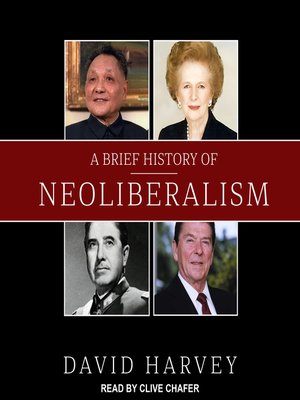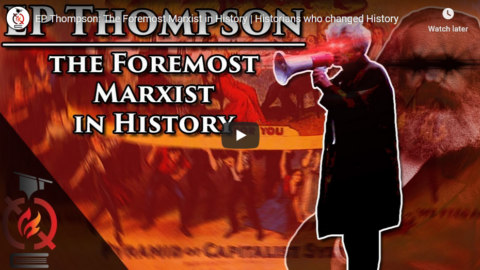Biographics
Published 29 Nov 2019This video is #sponsored by NordVPN.
Credits:
Host – Simon Whistler
Author – Morris M
Producer – Jennifer Da Silva
Executive Producer – Shell HarrisBusiness inquiries to biographics.email@gmail.com
Source/Further reading:
Britannica’s Orwell Bio: https://www.britannica.com/biography/…
Excellent, very informative ONDB biography (paywall for non-UK users. UK users need only enter library card number to access): https://www.oxforddnb.com/view/10.109…
Spanish civil war: https://encyclopedia.ushmm.org/conten…
https://www.history.com/this-day-in-h…
Orwell’s mistakes on the Spanish Civil War: https://www.theguardian.com/books/201…
Orwell at the BBC: https://www.bbc.com/news/entertainmen…
July 19, 2021
George Orwell: The Uncompromising Visionary
June 1, 2021
What Orwell wrote about in The Road to Wigan Pier applies just as well to the modern Labour Party
David Starkey points out that while the best contemporary analysis of the collapse of the Labour vote may come from Rod Liddle, he is in many ways just echoing the words of George Orwell in The Road To Wigan Pier:
“The first thing that must strike any outside observer,” Orwell’s analysis begins, “is that Socialism in its developed form is a theory confined entirely to the middle classes.” “The typical Socialist is not”, he explains, “a ferocious-looking working man with greasy overalls and a raucous voice. He is either a youthful snob-Bolshevik … or, still more typically, a prim little man with a white-collar job … [and] a social position which he has no intention of forfeiting.”
He — and even more it must be said she — is also likely to be odd. Here Orwell is unsparing. And spot on. “There is,” Orwell declares, “the horrible — the really disquieting — prevalence of cranks wherever Socialists are gathered together.” “One sometimes get the impression,” he continues, “that the mere words ‘Socialism’ and ‘Communism’ draw towards them with magnetic force every fruit-juice drinker, nudist, sandal-wearer, sex-maniac, Quaker, ‘Nature Cure’ quack, pacifist, and feminist in England.”
Oh and vegetarians. And beards. And “high-minded women”. And homosexuals, like the two “dreadful-looking old men”, clad “in pistachio-coloured shirts and khaki shorts into which their huge bottoms were crammed so tightly that you could study every dimple”, whom Orwell encountered on a bus in Letchworth. And so — effortlessly out-Liddling Liddle — on.
Above all, Orwell identified the same disdain for the working class. “Are these mingy little beasts,” he reflected after attending one Socialist conventicle, “the champions of the working class?”
“For every person there”, he recalled, “bore the worst stigmata of snobbish middle-class superiority. If a real working man, a miner dirty from the pit, for instance, had suddenly walked into their midst, they would have been embarrassed, angry and disgusted; some, I should think, would have fled holding their noses”.
“The truth is,” Orwell concludes, “that to many people calling themselves Socialists, revolution does not mean a movement of the masses with which they hope to associate themselves; it means a set of reforms which ‘we’, the clever ones, are going to impose upon ‘them’, the Lower Orders.”
But Orwell was writing in 1937. Not 2021. So how on earth did the Labour party, with even then such a freakish, repellent cadre at its core, survive and thrive as the great mass movement that, for a time, it became and whose passing Liddle laments?
May 7, 2021
Scott Alexander reviews David Harvey’s A Brief History Of Neoliberalism
[Update: In the comments, “gunker” explains that this is another of Scott’s reader-contributed book reviews, not one of his own work. My apologies for the mistake.] After a quick rundown of the conventional explanation for the decline and fall of the comfortable post-WW2 US economy in the 1970s, Scott gives an overall appreciation of Harvey’s arguments:
… This treatment is almost the opposite of the way ABHoN describes events. Telling the story this way makes me feel like Jacques Derrida deconstructing some text to undermine the author and prove that they were arguing against themselves all along.
Harvey is an extreme conflict theorist. The story he wants to tell is the story of bad people destroying the paradise of embedded liberalism in order to line their own pockets and crush their opponents. At his best, he treats this as a thesis to be defended: embedded liberalism switched to neoliberalism not primarily because of sound economic policy, but because rich people forced the switch to “reassert class power”. At his worst, he forgets to argue the point, feeling it so deeply in his bones that it’s hard for him to believe anyone could really disagree. When he’s like this, he doesn’t analyze any of the economics too deeply; sure, rich people said something something economics, to justify their plot to immiserate the working classes, but we don’t believe them and we’re under no obligation to tease apart exactly what economic stuff they were talking about.
In these parts, ABHoN‘s modus operandi is to give a vague summary of what happened, then overload it with emotional language. Nobody in ABHoN ever cuts a budget, they savagely slash the budget, or cruelly decimate the budget, or otherwise [dramatic adverb] [dramatic verb] it. Nobody is ever against neoliberal reform — they bravely stand up to neoliberal reform, or valiantly resist neoliberal reform, or whatever. Nobody ever “makes” money, they “extract” it. So you read a superficial narrative of some historical event, with all the adverbs changed to more dramatic adverbs, and then a not-very-convincing discussion of why this was all about re-establishing plutocratic power at the end of it. This is basically an entire literary genre by now, and ABHoN fits squarely within it.
Harvey’s theses, framed uncharitably, are:
1. Embedded liberalism was great and completely sustainable. The global economic system collapsing in 1971 was probably just coincidence or something, and has no relevance to any debate about the relative merit of different economic paradigms.
2. Sure, some people say that the endless recession/stagflation/unemployment/bankruptcy/strikes of the 1970s were bad, but those people are would-be plutocrats trying to seize power and destroy the working class.
3. When cities, countries, etc, ran huge deficits and then couldn’t pay any of the money back, sometimes the banks that loaned them that money were against this. Sometimes they even asked those places to stop running huge deficits as a precondition for getting bailed out. This proves that bankers were plotting against the public and trying to form a dystopian plutocracy.
4. Since we have proven that neoliberalism is a sham with no advantages, we should switch back to embedded liberalism.
Let’s go through these one by one and see whether I’m being unfair.
January 15, 2021
QotD: Capitalism and socialism, viewed from Harvard in 1942
[In Capitalism, Socialism and Democracy (1942), Joseph Schumpeter] suggested [that] capitalism’s greatest strength — its propensity for “creative destruction” — is also a source of weakness. Disruption may be the process that clears out the obsolescent and fosters the advent of the new, but precisely for that reason it can never be universally loved. Second, capitalism itself tends toward oligopoly, not perfect competition. The more concentrated economic power becomes, the harder it is to legitimize the system, especially in America, where “big business” tends to get confused with “monopoly.” Third, capitalism “creates, educates and subsidizes a vested interest in social unrest” — namely, intellectuals. (Here was the influence of Harvard; Schumpeter knew whereof he spoke.) Finally, Schumpeter noted, socialism is politically irresistible to bureaucrats and democratic politicians.
The idea that socialism would ultimately prevail over capitalism was quite a widespread view — especially in Cambridge, Massachusetts. It persisted throughout the Cold War. “The Soviet economy is proof that, contrary to what many skeptics had earlier believed, a socialist command economy can function and even thrive,” wrote Paul Samuelson, Schumpeter’s pupil, in the 1961 edition of his economics textbook — a sentence that still appeared in the 1989 edition. In successive editions, Samuelson’s hugely influential book carried a chart projecting that the gross national product of the Soviet Union would exceed that of the United States at some point between 1984 and 1997. The 1967 edition suggested that the great overtaking could happen as early as 1977. By the 1980 edition, the timeframe for this great overtaking had been moved forward to 2002–12. The graph was quietly dropped after the 1980 edition.
Niall Ferguson, “Capitalism, Socialism and Nationalism: Lessons from History”, 2020-02.
January 6, 2021
QotD: George Bernard Shaw’s views on eugenics
One of the most articulate eugenicists of the era was a man who survived until 1950, and remains one of the world’s most famous and respected dramatists. George Bernard Shaw, literary giant, author of more than sixty plays, and winner of the Nobel Prize.
The Irishman’s opinions are, however, coming back to mangle and even smash his reputation. A group of students at RADA have called for Shaw’s name to be removed from the drama school’s theatre as part of an anti-racism action plan. This matters, because Shaw provided for the school in his will, and last year the royalties from his work contributed more than £78,000 to RADA. Yet the accusation that the renowned theatre college “celebrates historical figures who embraced racist ideologies” does have a certain merit. Problem is, as has been debated myriad times: do, can, and should we separate an artist’s work from their period, character and ideas? If the ghosts of anachronism and historical assumptions are never to be exorcised, there are an awful lot of people who will fail and fall to the wide-awake litmus test.
Shaw did indeed write, that, “The only fundamental and possible socialism is the socialisation of the selective breeding of man” and, chillingly, “A part of eugenic politics would finally land us in an extensive use of the lethal chamber. A great many people would have to be put out of existence simply because it wastes other people’s time to look after them.” He lectured for the Eugenic Education Society, praised Stalin (naturally) the early Mussolini, and even Hitler as late as 1935. He abandoned most of all this in his old age but never made any formal apology.
He was also an incisive critic of imperialism, mercilessly exposed establishment hypocrisy, opposed war and oppression throughout his career, and cared passionately about actors and writers – the very people at RADA trying to expunge his name from their place of learning. And here’s another challenge and even embarrassment for those who would remove the social engineers from the litany of the great and the good: many of their harshest opponents were not others on the left but, in Edwardian Britain and in the 20s and 30s, conservative Roman Catholic writers led by G.K. Chesterton and Hilaire Belloc.
Michael Coren, “Eugenics and the intellectual left”, The Critic, 2020-09-16.
December 10, 2020
QotD: Italian Fascism and “corporatism”
… recently I ran across a quote beloved of American leftists in an email signature:
From Benito Mussolini: “Fascism should more properly be called corporatism, since it is the merger of state and corporate power.”
This quote is often misconstrued nowadays by leftists who view profit-making corporations under capitalism (especially multinational corporations) as instruments of the devil. They love the implied image of capitalist fat-cats and fascist dictators conspiring in gilded opulence. Alas for them that this quote actually doesn’t imply anything like that; the terminological ground under it has shifted.
The “corporatism” Mussolini to which was referring had, actually, nothing to do with corporations, joint-stock or otherwise (in the 1920s the word “corporation” did not yet have its modern sense, either in English or Italian). His use of the word had to do with a feature of fascist theory forgotten by almost everybody but specialist historians.
In fascist theory, “corporations” were bodies like unions, craft guilds, professional societies, and grange associations. See http://en.wikipedia.org/wiki/Corporatism for discussion; see especially the section “[F]ascist corporativism” [section name changed since 2009].
What Mussolini was actually enunciating was a sort of organic statism in which the state would bless or admit representatives of various “corporations” into its governing councils — and no, that didn’t mean Fiat or Beretta but (say) the Abruzzo Building Trades Association, or the Society of University Professors.
While corporations-in-the-modern-sense were not outright excluded from being legitimized “corporations” in the fascist sense, neither did they have any special status or power in the system. Actually, it was rather the reverse …
It’s worth remembering that the founders of fascism were mainly Leninists like Mussolini with a sprinkling of anarcho-syndicalists (George Sorel being the best known of those). Actual fascism retained the founders’ doctrinal hostility to what modern leftists would call “corporate power”, never renouncing its state-socialist roots and being (in fact) hostile to all centers of power other than the state itself.
The modern idea that German and Italian fascism were conservative or pro-business ideologies is essentially a fantasy constructed by pro-Soviet propagandists during and after World War II. In fact, classical fascism never wandered very far from its left-wing origins; corporatism can be seen as an elaboration of the theoretical role of worker’s soviets in Leninist theory.
Eric S. Raymond, “Misconstruing Mussolini”, Armed and Dangerous, 2009-06-29.
December 3, 2020
New York Prohibits Booze and Socialists | BETWEEN 2 WARS: ZEITGEIST! | E.06 – Winter 1920
TimeGhost History
Published 2 Dec 2020Science and technology is marching on as the world enters the 1920’s. But Americans have more to reckon with than just a new decade: every state in the country has gone “dry”.
Join us on Patreon: https://www.patreon.com/TimeGhostHistory
Hosted by: Indy Neidell
Written by: Indy Neidell and Francis van Berkel
Director: Astrid Deinhard
Producers: Astrid Deinhard and Spartacus Olsson
Executive Producers: Astrid Deinhard, Indy Neidell, Spartacus Olsson, Bodo Rittenauer
Creative Producer: Maria Kyhle
Post-Production Director: Wieke Kapteijns
Research by: Indy Neidell and Francis van Berkel
Image Research by: Daniel Weiss
Edited by: Daniel Weiss
Sound design: Marek KamińskiColorizations:
Daniel Weiss – https://www.facebook.com/TheYankeeCol…
Spartacus Olsson
Mikolaj UchmanSources:
Some images from the Library of Congress
Image from the Holocaust MuseumFrom the Noun Project:
Baker – by Wichai
Protest – by Juan Pablo Bravo
Store – by FahmiSoundtracks from Epidemic Sound and Frédéric Chopin
– “One More for the Road” – Golden Age Radio
– “Dark Shadow” – Etienne Roussel
– “Heroes On Horses” – Gunnar Johnsén
– “That’s How I Like It” – Oakwood Station
– “Not Safe Yet” – Gunnar Johnsen
– “Dark Beginning” – Johan Hynynen
– “Chopin Sonata no2” – 3rd movement
– “Faith in Truth” – Oakwood Station
– “Innocence of a Child” – Rupert Sachs
– “Endlessness” – Flouw
– “First Responders” – SkryaArchive by Screenocean/Reuters https://www.screenocean.com.
A TimeGhost chronological documentary produced by OnLion Entertainment GmbH.
November 30, 2020
Cultural Marxism or cultural leftism?
In the most recent Libertarian Enterprise, Sean Gabb discusses what British Conservatives have been warned against describing as “Cultural Marxism”:
So far as I understand him — and I write as an outsider to any school of Marxist ideology — Marx made five essential points. First, there have been, since the French Revolution, two classes — the bourgeoisie and the proletariat. Second, the bourgeoisie owns the means of production and exploits the proletariat through the extraction of surplus value. Third, this is an unstable parasitism, as the reinvestment of surplus value leads to periodic crises of over-production. Fourth, these crises concentrate wealth in fewer hands and expand and immiserise the proletariat. Fifth, there will be an inevitable revolution, in which the expropriators will be expropriated and a communist society will emerge. A further and perhaps optional sixth point is that the inevitable revolution can be hurried by the defection of informed bourgeois intellectuals to radicalise and form a vanguard for the proletariat.
Now, where is any of this in the present mix of climate alarmism and obsession with the alleged oppression of racial and sexual minorities? How is capitalism supposed to be overthrown by getting Sainsbury to fill its advertisements with pictures of black people eating Christmas dinner? Ditto boycotts of Israeli pharmaceuticals? Ditto arguing with or against radical feminists over the exact status of men who change sex?
The answer, of course, is the Cultural Marxist hypothesis — that the present culture wars are a product of the writings of Antonio Gramsci and the Frankfurt School. These men took the Marxian concept of “false consciousness” — that the bourgeoisie keeps the workers quiet by making them believe that all is for the best — and enlarged it into a project for achieving a counter-hegemony by taking over the means of cultural reproduction.
There is some truth in this answer, so far as these writings are prescribed in most university humanities departments, and many advocates of the new totalitarianism have at some time called themselves Marxists. It is, even, so a weak answer. Before about 60 AD, most Christians were Jews, and Christianity ever since has retained some Jewish religious writings among its core texts. But nothing is achieved by describing Christianity as “Gentile Judaism.” The differences between the two faiths are too essential to define either by reference to the other. In the same way, the present totalitarianism has nothing to do with the essential claims of Marxism. It lacks any interest in the analysis of surplus value, and its belief in the instability of unregulated markets derives mainly from a reading of Keynes and the welfare economists of the Cambridge School.
I prefer the term “cultural leftism.” I prefer this because the present totalitarianism is based on belief in an appearance of equality mediated by the State. It therefore has elements of socialism as reasonably defined. But it is in no sense Marxist. Its revealed preference is for a ruling class that is a coalition of politicians, administrators, policemen, lawyers, educators, plus media and business interests. So far as individuals move freely between them, these groups are mutually permeable. If they disagree over incidentals, they preside collectively over a mass of the ruled who are mostly well-nourished, but who are too atomised and intimidated by often meaningless words to combine in opposition.
Indeed, if I prefer my chosen term, I see little point in arguing against what it describes. Undoubtedly, this must be explained and opposed. But too much analysis of particulars can risk an overlooking of the much more important generality. This is that, in every time and place, there have been those who want to get on with their lives and those who want to control others. These latter will take up whatever body of ideas is most likely within the prevailing assumptions of their age to legitimise their urges.
November 17, 2020
“We are so well off here in the United States that our poverty line begins 31 times above the global average. Thirty. One. Times.”
Alyssa Ahlgren ponders the fact that we North Americans take our unprecedented-in-human-history prosperity very much for granted:
I’m sitting in a small coffee shop near Nokomis trying to think of what to write about. I scroll through my newsfeed on my phone looking at the latest headlines of Democratic candidates calling for policies to “fix” the so-called injustices of capitalism. I put my phone down and continue to look around.
I see people talking freely, working on their MacBooks, ordering food they get in an instant, seeing cars go by outside, and it dawned on me. We live in the most privileged time in the most prosperous nation and we’ve become completely blind to it. Vehicles, food, technology, freedom to associate with whom we choose.
These things are so ingrained in our American way of life we don’t give them a second thought. We are so well off here in the United States that our poverty line begins 31 times above the global average. Thirty. One. Times. Virtually no one in the United States is considered poor by global standards. Yet, in a time where we can order a product off Amazon with one click and have it at our doorstep the next day, we are unappreciative, unsatisfied, and ungrateful.
Our unappreciation is evident as the popularity of socialist policies among my generation continues to grow. Democratic Congresswoman Alexandria Ocasio-Cortez recently said to Newsweek talking about the millennial generation, “An entire generation, which is now becoming one of the largest electorates in America, came of age and never saw American prosperity.”
Never saw American prosperity. Let that sink in. When I first read that statement, I thought to myself, that was quite literally the most entitled and factually illiterate thing I’ve ever heard in my 26 years on this earth. Now, I’m not attributing Miss Ocasio-Cortez’s words to outright dishonesty. I do think she whole-heartedly believes the words she said to be true. Many young people agree with her, which is entirely misguided. My generation is being indoctrinated by a mainstream narrative to actually believe we have never seen prosperity. I know this first hand, I went to college, let’s just say I didn’t have the popular opinion, but I digress.
Let me lay down some universal truths really quick. The United States of America has lifted more people out of abject poverty, spread more freedom and democracy, and has created more innovation in technology and medicine than any other nation in human history. Not only that but our citizenry continually breaks world records with charitable donations, the rags to riches story is not only possible in America but not uncommon, we have the strongest purchasing power on earth, and we encompass 25 percent of the world’s GDP. The list goes on.
October 25, 2020
QotD: The omnibenevolent, omniscient state
If the state were all-wise and all-good it is conceivable that it would not misuse its supreme economic power. But the idea that the state is somehow wiser and better than the best of its citizens is a metaphysical delusion. In practice the concentration of all economic power in the hands of the state … has hitherto always been followed by the enslavement of thought and action. “Power corrupts”, and states do not differ from individuals in this respect. But the tyranny of an individual is limited by the circumscribed area of his power, whereas the power of the collectivist state is boundless; and the concentration of all power in the hands of the state will in practice almost certainly be followed by the imposition of a rigid orthodoxy in belief.
Ivor Thomas, The Socialist Tragedy, 1951.
October 20, 2020
QotD: The errors of socialist experiments
The rock on which socialistic experiments have hitherto always foundered is human nature. Any sound political system must be based on a correct appreciation of human nature; and socialism is bound to fail because it offends the best elements of human nature and panders to the worst.
Ivor Thomas, The Socialist Tragedy, 1951.
August 28, 2020
QotD: Communism and socialism
Communism was the most aggressive and (up to a point) successful offshoot of an 18th century idea called socialism. A great deal has been written since the middle of the 19th century — especially academically — about socialism (I once attended a seemingly endless lecture on the orthodox Marxist interpretation of Jean Paul Sartre’s excruciatingly boring 1944 existentialist play No Exit), but in the end, what it all boils down to is nothing more than a fairly shabby and pretentious attempt to make simple theft seem respectable.
If you have something — some money, a car, a house, a plot of land, a factory, a body of literary accomplishments, even things like television sets and devices to play music — you can bet that somebody, somewhere is trying to figure out how to appropriate, expropriate, steal, or simply take it away from you. And most of those schemers will be college professors and politicians.
Under a set of natural laws that can be seen as ethical addenda to the laws of thermodynamics, it is always less effort to destroy than to build, which is what makes war an attractive threat for barbarians and looters to wield, and it is always less effort to steal things than to create or earn them, which is why we have always had thieves of various stripes among us, including college professors and politicians.
Within a democracy, socialism is a cynical con-game that, like all con-games everywhere, can’t operate without larceny in the heart of the “victim” or mark. Convince young voters that they can have a free higher education (regardless of how it’s going to get paid for or who’s going to pay for it), and, having been taught nothing useful by the socialist primary and secondary education systems they were compelled by force to attend, they will ignorantly vote you into office. Convince them that you deserve the power to order private businesses to pay them fifteen dollars an hour (whether their labor is actually worth it and it damages the business or not), and they will stupidly make you king.
That, in a nut-shell, and spread out over the entire culture, is what happened to Venezuela and why they’ve had to eat their pets. It’s what’s happened for three generations in North Korea, and why, it’s rumored, that cannibalism is being practiced there. The history of a hundred other countries that have tried socialism and suffered hideously for it informs us that these kinds of developments are inevitable.
L. Neil Smith, “Bernie Sanders Wants You Dead”, Libertarian Enterprise, 2018-05-12.
August 11, 2020
Orwell’s “Notes on Nationalism”
In Quillette, Adam Wakeling discusses George Orwell’s essay in the postwar magazine Polemic:
In the bleak post-war Britain of October 1945, an essay by George Orwell appeared in the first edition of Polemic. Edited by abstract artist and ex-Communist Hugh Slater, the new journal was marketed as a “magazine of philosophy, psychology, and aesthetics.” Orwell was not yet famous — Animal Farm had only just started appearing on shelves — but he had a high enough profile for his name to be a boon to a new publication. His contribution to the October 1945 Polemic was “Notes on Nationalism,” one of his best and most important pieces of writing. Amidst the de-Nazification of Germany, the alarmingly rapid slide into the Cold War, and the trials of German and Japanese war criminals, Orwell set out to answer a question which had occupied his mind for most of the past seven years — why do otherwise rational people embrace irrational or even contradictory beliefs about politics?
As a junior colonial official in Burma, the young Eric Blair (he had not yet adopted the name by which he would be known to posterity) had been disgusted by his peers and superiors talking up the British liberty of Magna Carta and Rule Britannia while excusing acts of repression like the massacre of Indian protestors at Amritsar in 1919. As a committed socialist in the late 1930s, he openly ridiculed those who claimed to be champions of the working class while holding actual working-class people in open contempt. And he had watched the British Communist Party insist that the Second World War was nothing more than an imperialist adventure right up until the moment when the first German soldier crossed the Soviet frontier, at which point it instantly became a noble struggle for human freedom.
Orwell’s most personally searing experience, though, had come in Barcelona in 1937. The previous year, he had travelled to Spain to fight in the Civil War on the Republican side. His poor relationship with the British Communist Party led him to enlist in the militia of an anti-Stalinist socialist party, the POUM (Partido Obrero de Unificación Marxista, or Workers’ Party of Marxist Unification). Even while it was fighting a bitter winter campaign in the Aragon mountains, the POUM was subject to a relentless propaganda campaign by pro-Soviet Republicans who insisted it was a secret front for fascism.
Over May and June 1937, the POUM and the other independent left-wing organisations in Barcelona were brutally suppressed by the Republican Government and Soviet-backed Communists. Orwell saw his friends and comrades smeared, arrested, and in some cases shot. He only made a narrow escape back into France himself. Upon his return to Britain, he found the British Communist Party resolute in its line that the POUM was a fascist party. Admitting that there could be a difference of opinion among left-wing groups with respect to the Soviet Union, or that the Spanish Communists could have acted unjustly, was unacceptable. And when Orwell published his own account of the events in Spain, Homage to Catalonia, few were interested in reading it. The betrayal of the POUM weighed on Orwell’s mind through the Second World War, and Animal Farm provided an outlet for his anger. But those bloody spring days in Barcelona also informed “Notes on Nationalism.”
“Notes on Nationalism” is not an ideal title, as Orwell was not talking only about loyalty to country. Rather, he used nationalism as a short-hand for any type of group loyalty — to a country, but also to a religion, a political party, or an ideology itself. A nationalist may be defined by his membership of a group, or by his opposition to one, which Orwell called “negative” nationalism. Orwell used anti-Semites as an example of the latter, as well as the “minority of intellectual pacifists whose real though unadmitted motive appears to be hatred of Western democracy and admiration of totalitarianism.” He then set out to explain how everyone — no matter how reasoned and level-headed — is capable of irrational and biased thinking when our sense of group identity is challenged.
He identified three characteristics of “‘nationalistic’ thinking.” First, obsession — the ideologue’s need to filter everything through an ideological lens. Entertainment is not entertaining unless it is orthodox. Second, instability — the ability of the ideologue to go from believing one thing to quickly believing another to follow the party line. And thirdly, indifference to reality. One of the most interesting aspects of “Notes on Nationalism” is the “inadmissible fact” — something which can be proven to be true and is generally accepted but cannot be admitted by the adherents of a particular ideology. Or, if the fact is admitted, it is explained away or dismissed as unimportant.
The ideas explored in “Notes on Nationalism” run through much of Orwell’s writing, most obviously his anti-totalitarianism and hatred of hypocritical pieties. But central to his argument is how nationalistic thinking exposes our inescapable biases. “The Liberal News Chronicle,” he wrote, “published, as an example of shocking barbarity, photographs of Russians hanged by the Germans, and then a year or two later published with warm approval almost exactly similar photographs of Germans hanged by the Russians.” This anticipated the doublethink of Nineteen Eighty-Four, in which atrocities “are looked upon as normal, and, when they are committed by one’s own side and not by the enemy, meritorious.” The first step down the deceptively short road to totalitarianism is believing that our political enemies pose such a grave threat that defeating them takes precedence over truth, consistency, or common sense.
August 7, 2020
A Career Anti-Fascist – George Orwell – WW2 Biography Special
World War Two
Published 6 Aug 2020George Orwell is one of the most famous English writers in the modern age. But how did he become the man who would coin so many of the words we still use in our political debates?
Join us on Patreon: https://www.patreon.com/TimeGhostHistory
Or join The TimeGhost Army directly at: https://timeghost.tvFollow WW2 day by day on Instagram @World_war_two_realtime https://www.instagram.com/world_war_two_realtime
Between 2 Wars: https://www.youtube.com/playlist?list…
Source list: http://bit.ly/WW2sourcesHosted by: Indy Neidell
Written by: Rune Væver Hartvig
Director: Astrid Deinhard
Producers: Astrid Deinhard and Spartacus Olsson
Executive Producers: Astrid Deinhard, Indy Neidell, Spartacus Olsson, Bodo Rittenauer
Creative Producer: Joram Appel
Post-Production Director: Wieke Kapteijns
Research by: Rune Væver Hartvig
Edited by: Mikołaj Cackowski
Sound design: Marek Kamiński
Map animations: Eastory (https://www.youtube.com/c/eastory)Colorizations by:
Cassowary https://www.flickr.com/photos/cassowa…
Klimbim https://www.flickr.com/photos/2215569…Sources:
Wellcome Images V0014461
Bundesarchiv
Narodowe Archiwum Cyfrowe
From the Noun Project: Pig by supalerk laipawat, Horse by supalerk laipawat, Goat by Laymik, Sheep by Laymik, Cow by supalerk laipawat, Chicken by supalerk laipawat, Farmer by Symbolon, Podium by Focus LabSoundtracks from the Epidemic Sound:
Howard Harper-Barnes – “London”
Johannes Bornlof – “Deviation In Time”
Johannes Bornlof – “The Inspector 4”
Skrya – “First Responders”
Jo Wandrini – “Puzzle Of Complexity”Archive by Screenocean/Reuters https://www.screenocean.com.
A TimeGhost chronological documentary produced by OnLion Entertainment GmbH.
August 1, 2020
EP Thompson: The Foremost Marxist in History | Historians who changed History
The Cynical Historian
Published 1 Nov 2018Today let’s talk about Marxist historians. Edward Palmer Thompson makes perhaps the best introduction to the realm of Marxist history. His work on the English Labor Class, allows for a better understanding of the Marxist project, and how understanding class consciousness can lead to revolution.
————————————————————
references:
Beard, Charles. “Written History as an act of Faith”, The American Historical Review 39, no. 2 (January 1934), 219-231.Marx, Karl. The Essential Marx. ed. Leon Trotsky, abridgment of Das Kapital, Vol. I. 1939; Mineola, N.York: Dover Publications, 2006. https://amzn.to/2MWygco
Thompson, E.P. “The Moral Economy of the English Crowd in the Eighteenth Century”, Past and Present, No. 50 (Feb., 1971), 76-136.
Thompson, E.P. The Making of the English Working Class. New York: Pantheon Books, 1963. https://amzn.to/2KFSESC
Special thanks to Dr. Colleen Hall-Patton for proofreading the script for this episode.
————————————————————
Support the channel through Patreon:
https://www.patreon.com/CynicalHistorian
or pick up some merchandise at SpreadShirt:
https://shop.spreadshirt.com/cynicalh…LET’S CONNECT:
https://discord.gg/Ukthk4U
https://twitter.com/Cynical_History
————————————————————
Wiki:
Edward Palmer Thompson (3 February 1924 – 28 August 1993), usually cited as E. P. Thompson, was a British historian, writer, socialist and peace campaigner. He is probably best known today for his historical work on the British radical movements in the late 18th and early 19th centuries, in particular The Making of the English Working Class (1963). He also published influential biographies of William Morris (1955) and (posthumously) William Blake (1993) and was a prolific journalist and essayist. He also published the novel The Sykaos Papers and a collection of poetry. His work is considered to have been among the most important contributions to labour history and social history in the latter twentieth-century, with a global impact, including on scholarship in Asia and Africa.Thompson was one of the principal intellectuals of the Communist Party in Great Britain. Although he left the party in 1956 over the Soviet invasion of Hungary, he nevertheless remained a “historian in the Marxist tradition”, calling for a rebellion against Stalinism as a prerequisite for the restoration of communists’ “confidence in our own revolutionary perspectives”. Thompson played a key role in the first New Left in Britain in the late 1950s. He was a vociferous left-wing socialist critic of the Labour governments of 1964–70 and 1974–79, and an early and constant supporter of the Campaign for Nuclear Disarmament, becoming during the 1980s the leading intellectual light of the movement against nuclear weapons in Europe.
————————————————————
Hashtags: #History #Marx #EPThompson #ClassConsiousness #Materialism #TheMakingOfTheEnglishWorkingClass












